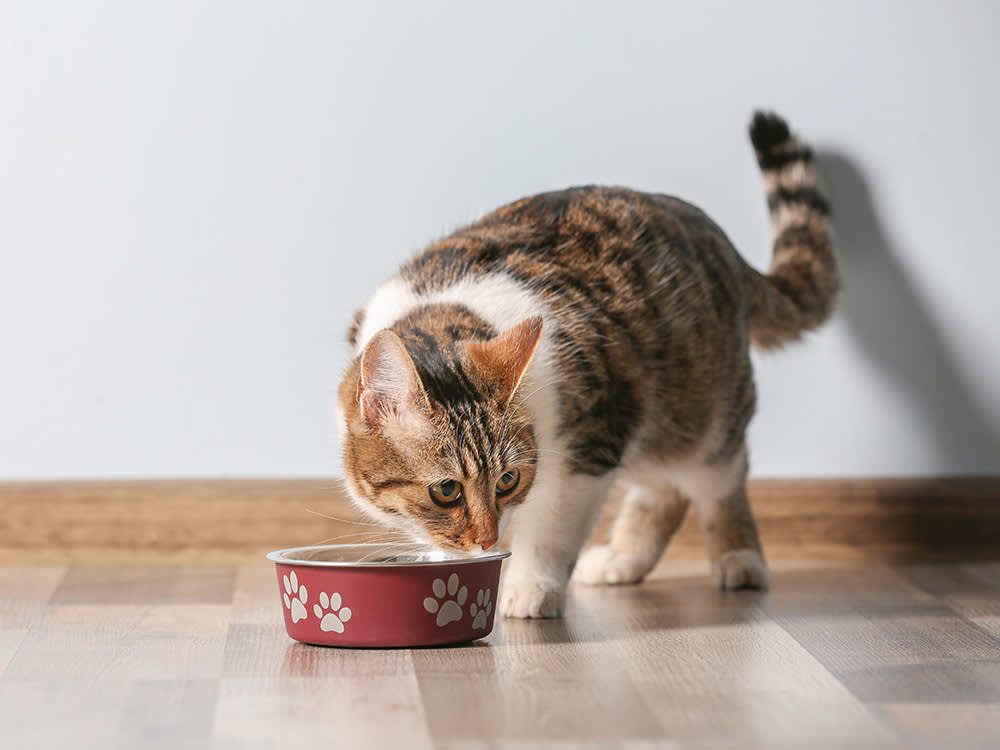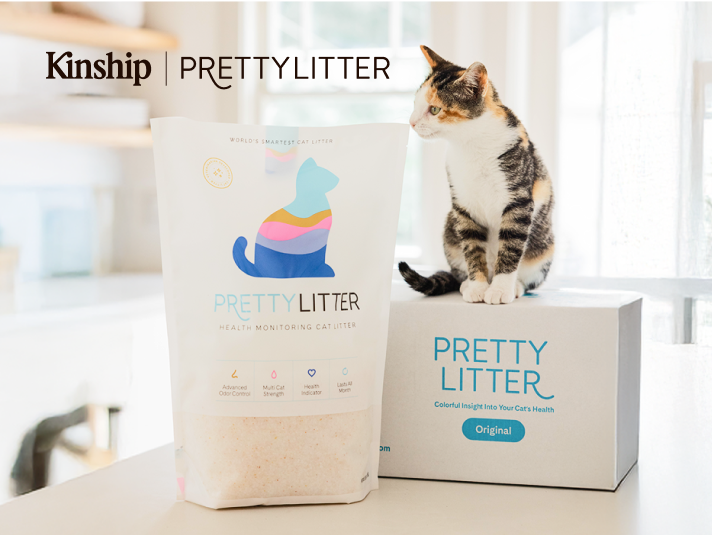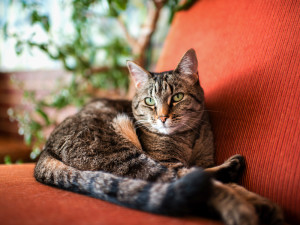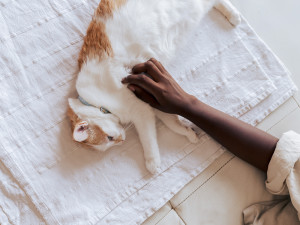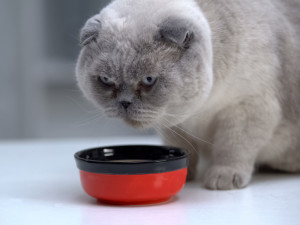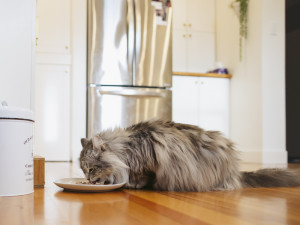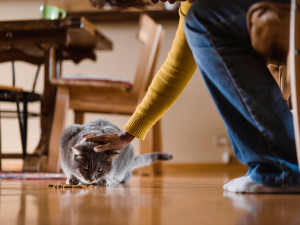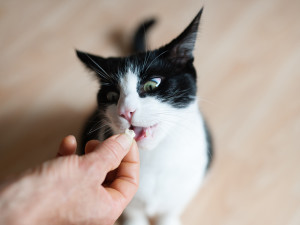Do Cat Foods For Sensitive Stomachs Really Help?
Dr. Bruce Kornreich explains why going this route isn’t always the answer.
Hairballs. Vomit. Diarrhea. Is this hell? Nope, it’s just a cat with digestive issues — which, to be fair, is kind of like hell. When a cat has tummy troubles, it’s not pleasant for anyone involved (unless you happen to love scrubbing cat puke out of the carpet). Understandable, then, that a person would want to help their cat feel better as soon as possible.
But how do you do that? You may be tempted to switch your cat’s food as a first step. After all, isn’t that the point of sensitive stomach cat food? But doing that would be skipping over necessary steps to determine the cause of you and your cat’s anguish. A change in diet may ultimately prove beneficial to your cat, but you can only be certain after figuring out what’s really going on with your kitty through the process of elimination.
Save on the litter with color-changing tech that helps you better care for your cat.
What to Do if Your Cat Is Having Issues With Digestion
First, according to Dr. Bruce Kornreich, the director of the Cornell Feline Health Centeropens in new tab, you want to isolate the cause of your cat’s digestive issues, and that means taking your cat to your veterinarian. Get ’em in their cat carrier and ask the professionals for a full medical workup — bloodwork, urinalysis, the whole caboodle.
In the end, “sensitive stomach” is not a medical term, but a marketing one. It typically refers to a cat who’s experiencing chronic vomiting and/or diarrhea. “The important thing to realize here is there are many other things that can cause vomiting and diarrhea,” Dr. Kornreich says.
While the cause may be a food sensitivity, it could also be the result of inflammatory bowel disease (IBD), lymphoma, parasites, liver disease, hyperthyroidism, gastrointestinal obstruction...the list goes on. Treating an obstruction or cancer with a change in diet wouldn’t be very helpful to the cat, so let your vet narrow down what the cause of these GI issues is.
How to Figure Out if Your Cat Has a Food Sensitivity
Starting with what creates the least risk, your vet will likely want to find out if your cat is allergic to something in their diet by either performing an allergy panel through a skin or blood test, or by putting your cat on an elimination diet, typically by switching proteins (such as changing from chicken to salmon). If you go the elimination diet route, your cat would be eating their new food for a minimum of eight to 10 weeks, with no other food of any kind for that entire period. If your cat responds — that is, the vomiting and/or diarrhea stops — “that suggests that a particular component of the old diet was the problem,” Dr. Kornreich says.
If an elimination diet doesn’t work, your vet may put your cat on a hydrolyzed diet, which helps pre-digest the food by breaking up the proteins. In some cases, you may be able to cook for your cat with the guidance of a veterinary nutritionist. If a change in diet works, then your cat will most likely be diagnosed with food responsive enteritis (FRE), and you’ll be keeping them on their new diet in order to improve their quality of life.
How to Distinguish Between Inflammatory Bowel Disease and Cancer
Things may get scary before you know your cat’s diagnosis. “A huge problem in cats right now is that it’s virtually impossible to distinguish inflammatory bowel disease from lymphoma without a biopsy,” Dr. Kornreich says. But getting a biopsy would mean putting your cat under anesthesia, which does carry more risks than a food trial.
Whatever the prognosis, it’s important that you take your cat to see a veterinarian to help determine the cause of their upset stomach. No one wants to see their pet in pain, and by taking these steps to understand their physical cues, you’ll ultimately come up with a plan to cure their ailments.
